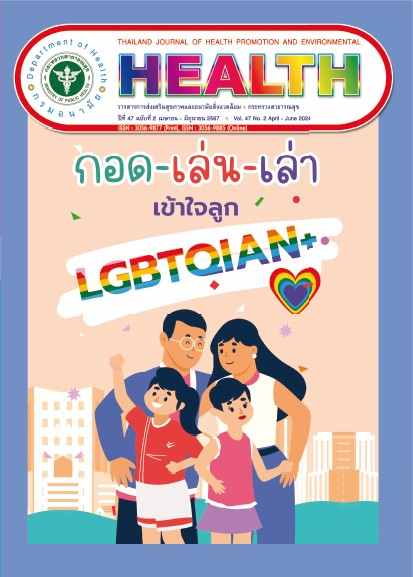The Development of Communities on the Age-Friendly Cities Concept for Tripartite Participation
Keywords:
age-friendly city, tripartite participation, community model development, quality of lifeAbstract
The World Health Organization (WHO) predicted that in 2033 Thailand will enter a “super aging society” with the proportion of people aged 60 years and over at the rate of 28 percent of the total population. To prepare for this situation, the World Health Organization (WHO) framework has been used as a guideline for developing community models that are friendly to the elderly. The area of this research is the Thung Khru District. The objectives of this study were 1) to study the conditions and needs of community development based on concept of age-friendly city with tripartite participation, 2) to develop a community model based on the concept of age-friendly city with tripartite participation, 3) to study learning outcomes on using a community model based on the concept of age-friendly city with tripartite participation, and 4) to study the satisfaction on using community model based on the concept of age-friendly city with participation. The sample group used in this study was divided into 3 groups: Elderly people living in the Thung Khru area A total of 400 people, 7 experts representing the government sector, the public sector, the religious sector and a sample of 40 elderly people. The study found that: 1. majority of respondents, 52.03%, thought that activities in all three areas, namely social participation, community and health services, and communication and information provision, will lead to an elderly-friendly city. 2. Community model based on the concept of age-friendly city with tripartite participation in the context of Thung Khru area consists of 3 elements : 1) social participation 2) community services and health 3) communication and information, and 2 aspects: environment and activities. These were under the concept of having religious place as a center of the community. 3. There were differences in pre-test and post-test scores to assess learning outcomes of older adults. This revealed that the elderly had increased understanding the elements of age-friendly city development in the context of Thung Khru area statistically significant at .05. 4. Overall, the average satisfaction percentage was 95.37%. The environment aspect had most satisfied at 95.43%. It was recommended to further study some issues that are sub-components of the three major components in community development according to the concept of age-friendly city
Downloads
Published
Issue
Section
License
Copyright (c) 2024 Thailand journal of Health Promotion and Environmental Health

This work is licensed under a Creative Commons Attribution-NonCommercial-NoDerivatives 4.0 International License.

